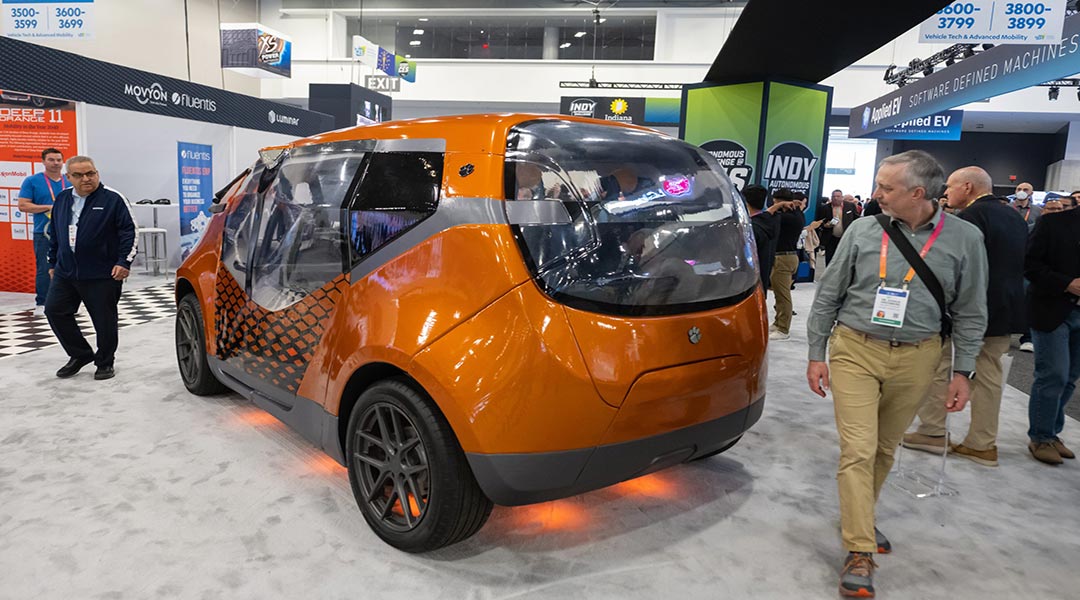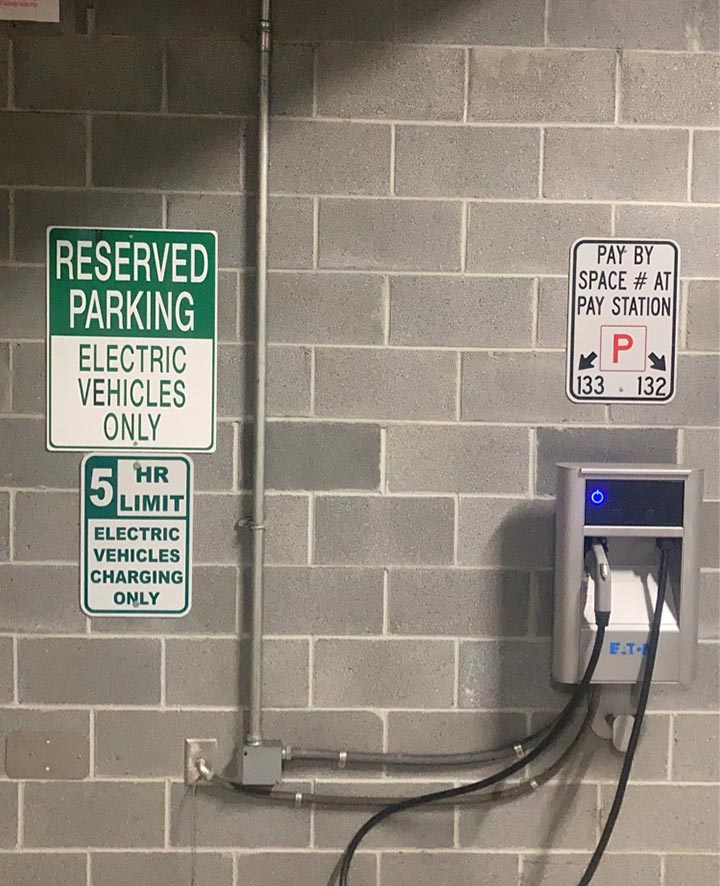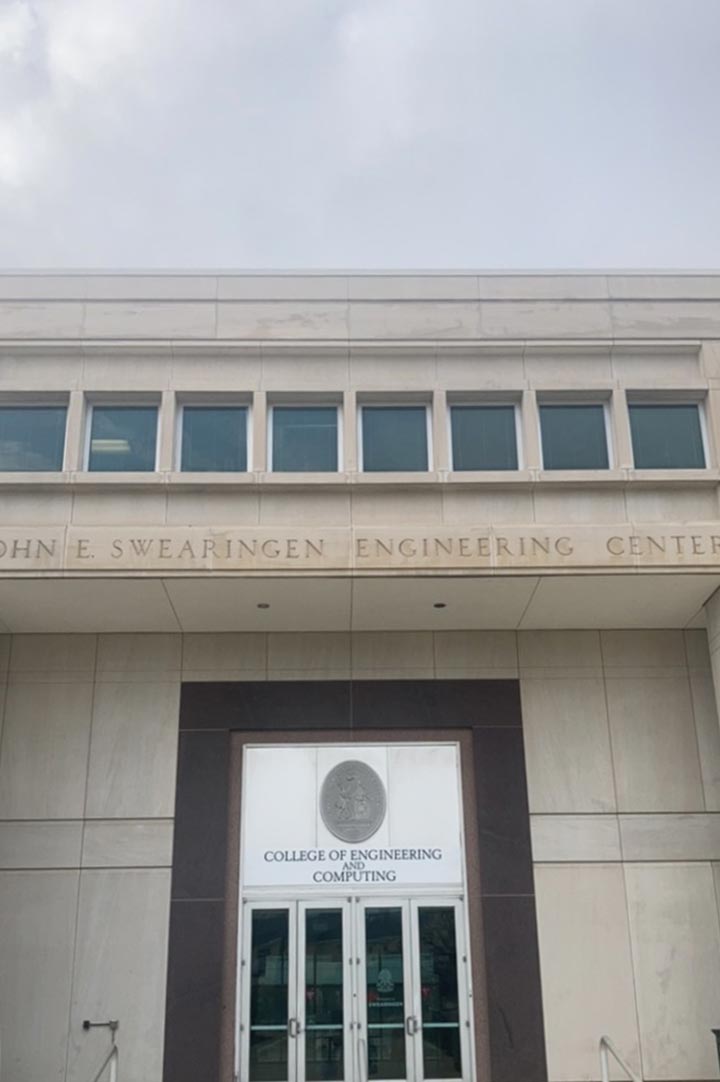Clemson’s concept of an electric vehicle, Deep Orange 11, was featured during the Consumer Electronics Show in Las Vegas in January. (Photo Courtesy of Clemson University)
Clemson University introduced the nation’s first electric vehicle school this year in response to South Carolina’s growing contribution to the automotive development industry.
The state is home to major leaders in the automotive development industry, such as BMW, Volvo, Continental, Bosch and Michelin. It’s also the top exporter of passenger vehicles in the United States, according to the SC Department of Commerce.
Clemson’s increased involvement in the industry isn’t so surprising.
With the installation of Redwood in the Lowcountry and BMW’s Upstate partnership with EnVision, both EV battery cell producers, this rings even more true.
Zoran Filipi, the founding director of the School of Mechanical and Automotive Engineering at Clemson, said South Carolina’s EV industry development was the inspiration behind its new program: to provide research and workforce in response.
“South Carolina plays a big role, and it’s only going to increase, ” Filipi said. “We (South Carolina) have become a new automotive capital of the U.S.”
Clemson plans to merge both its mechanical and automotive engineering departments into one school beginning in Fall 2023. The move would allow for a new age of innovation and pioneers, the school said.
“It’s not only about mechanical engineering anymore,” Filipi said. “It’s electrical, software and computer science as well.”
Will the University of South Carolina’s College of Engineering develop its own EV program after such major strides in the Upstate?
The short answer: No, not just yet.
Kristen Booth, assistant professor at USC’s engineering college, described Carolina’s version of an EV school as far off.
Booth, who specializes in EV research, said she would love to see an electric vehicle degree program at USC.
But there are many cross-disciplinary courses USC offers to prepare students for the electric vehicle industry that is beginning to call the state home, Booth said.
“Even if the certificate (option) is not there, the trick is that there are a lot of opportunities to take classes in those spaces to get the fundamentals that would help people secure jobs in those (EV) fields,” Booth said.
USC is dipping its toes into EV development with the production of its own electric vehicle, despite the lack of a focused program.
“We have a semi-active, what we call, a Formula SAE car, an extracurricular that has been housed in the mechanical engineering department along with cross-disciplinary work with electrical engineering students,” Booth said. “… The whole point of that is to build an EV race car.”
As ambitious as an SAE car might seem, it’s not entirely out of reach.
Clemson already has rolled out its own interpretation of an electric vehicle, the Deep Orange 11, which was recently featured during the Consumer Electronics Show in Las Vegas.
USC students are willing to dive head first into a new era of technology, said Grayson Mobley, a senior USC mechanical engineering student.
“An electric vehicle program would be perfect for USC,” Mobley said. “There is enough room for this program … I would definitely pursue a degree in this either through research or actual classes. And I am sure many other students would as well.”
One of the many electric vehicle charging stations located in Columbia, illustrating the rising accessibility of the industry. (Photo by Dyan Knichel)
The Swearingen building at the University of South Carolina’s College of Engineering, the likely home of an EV school addition. (Photo by Dylan Knichel)




